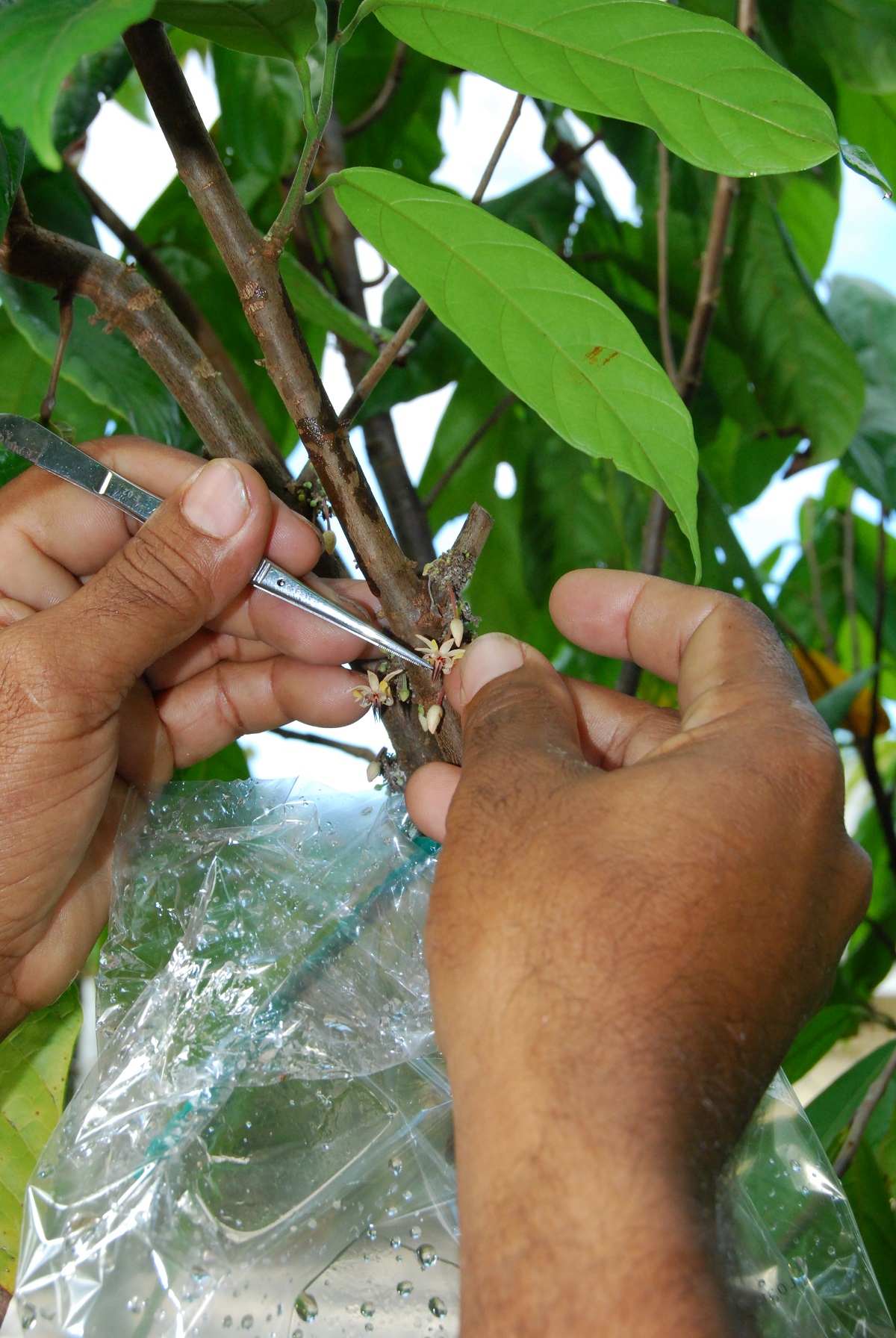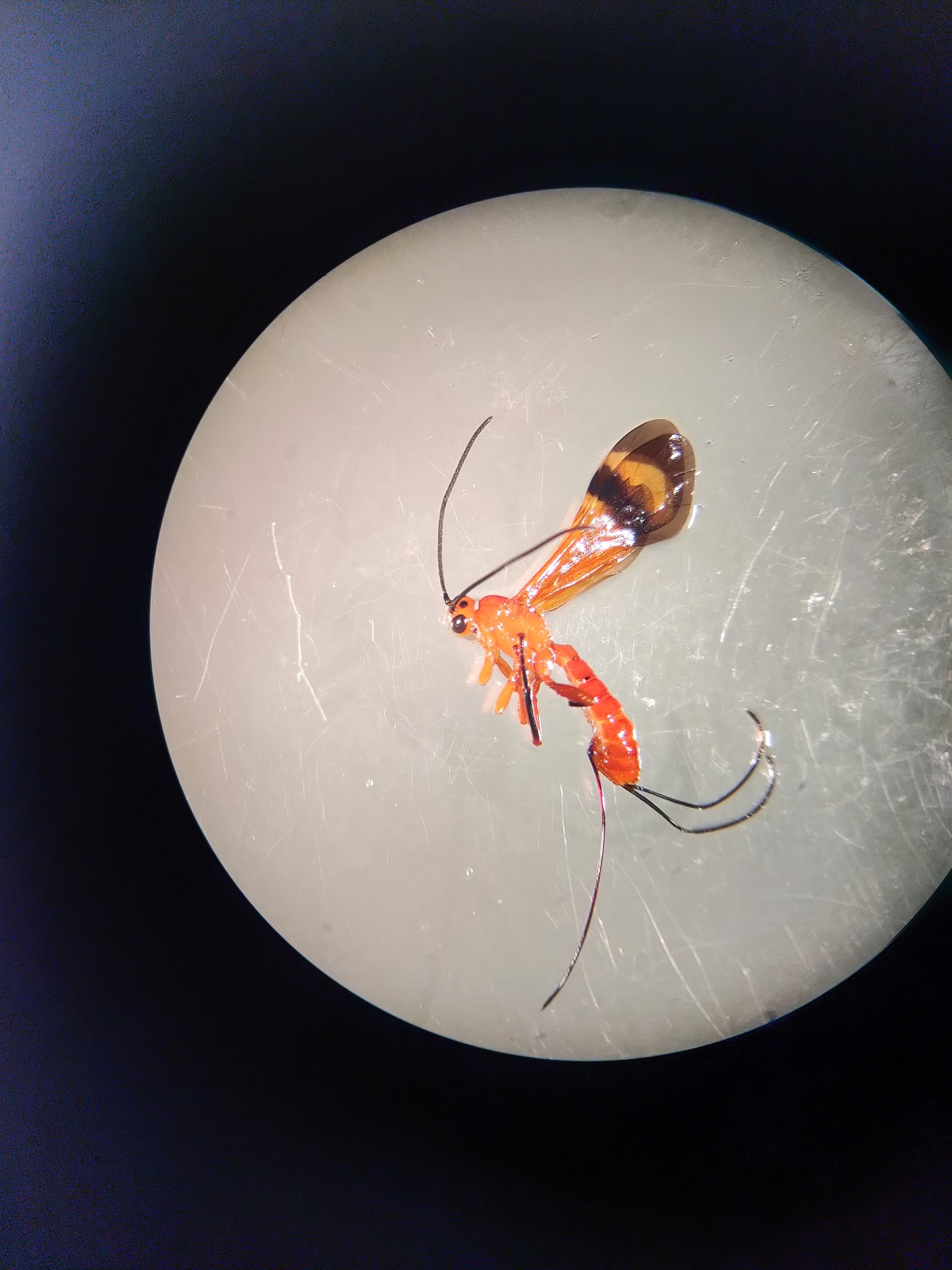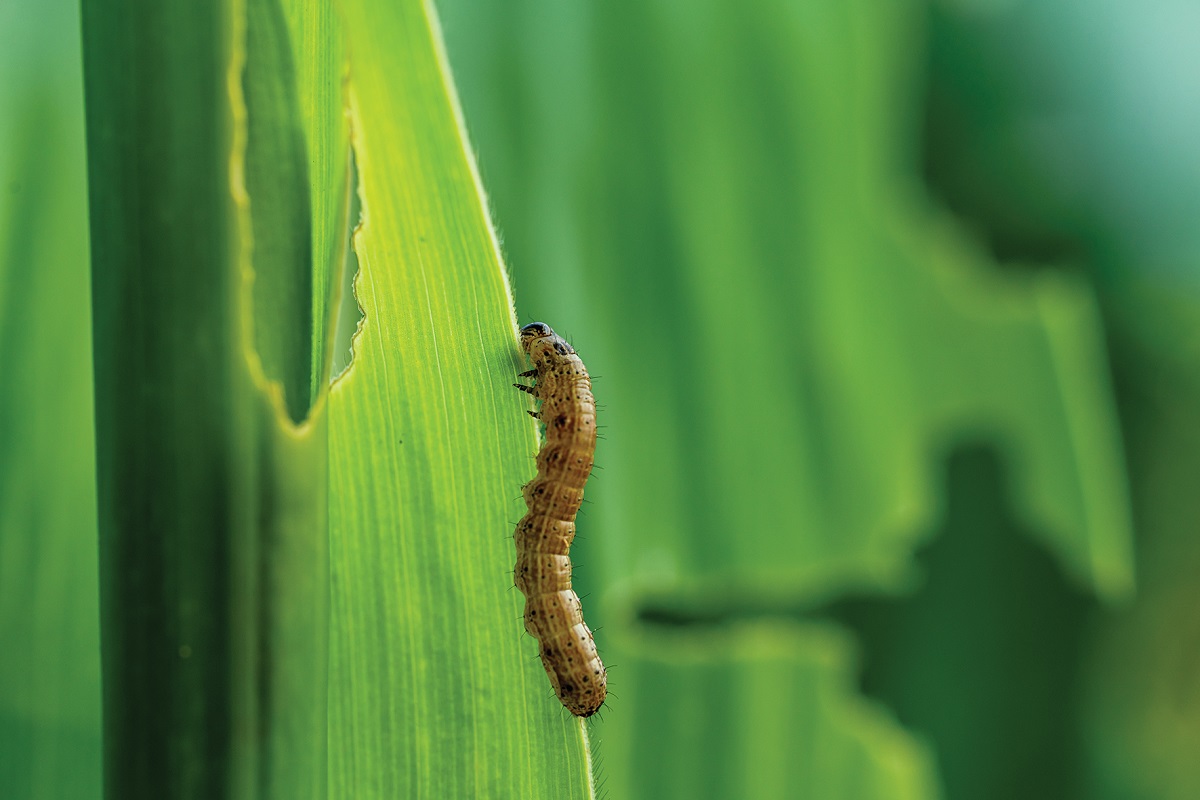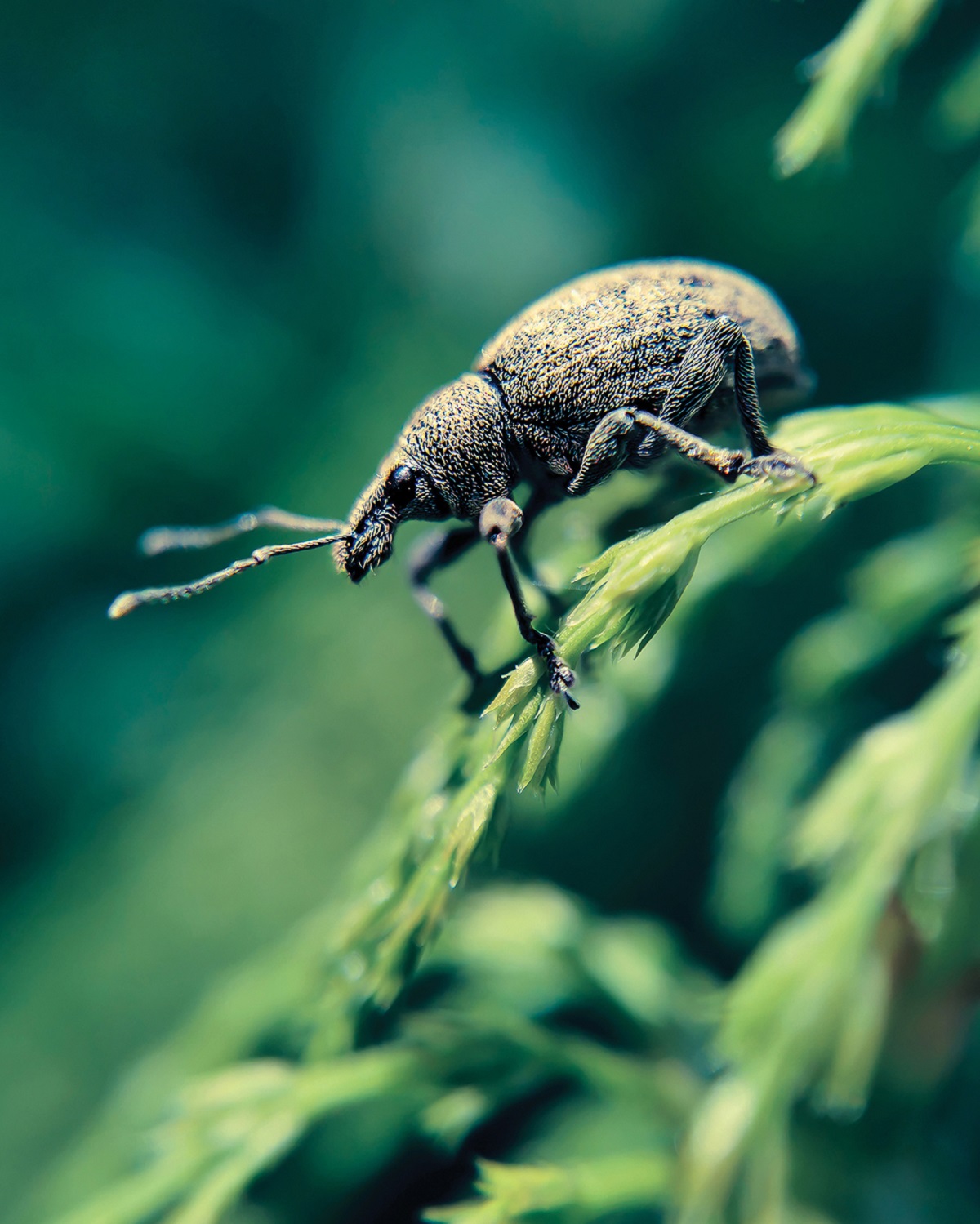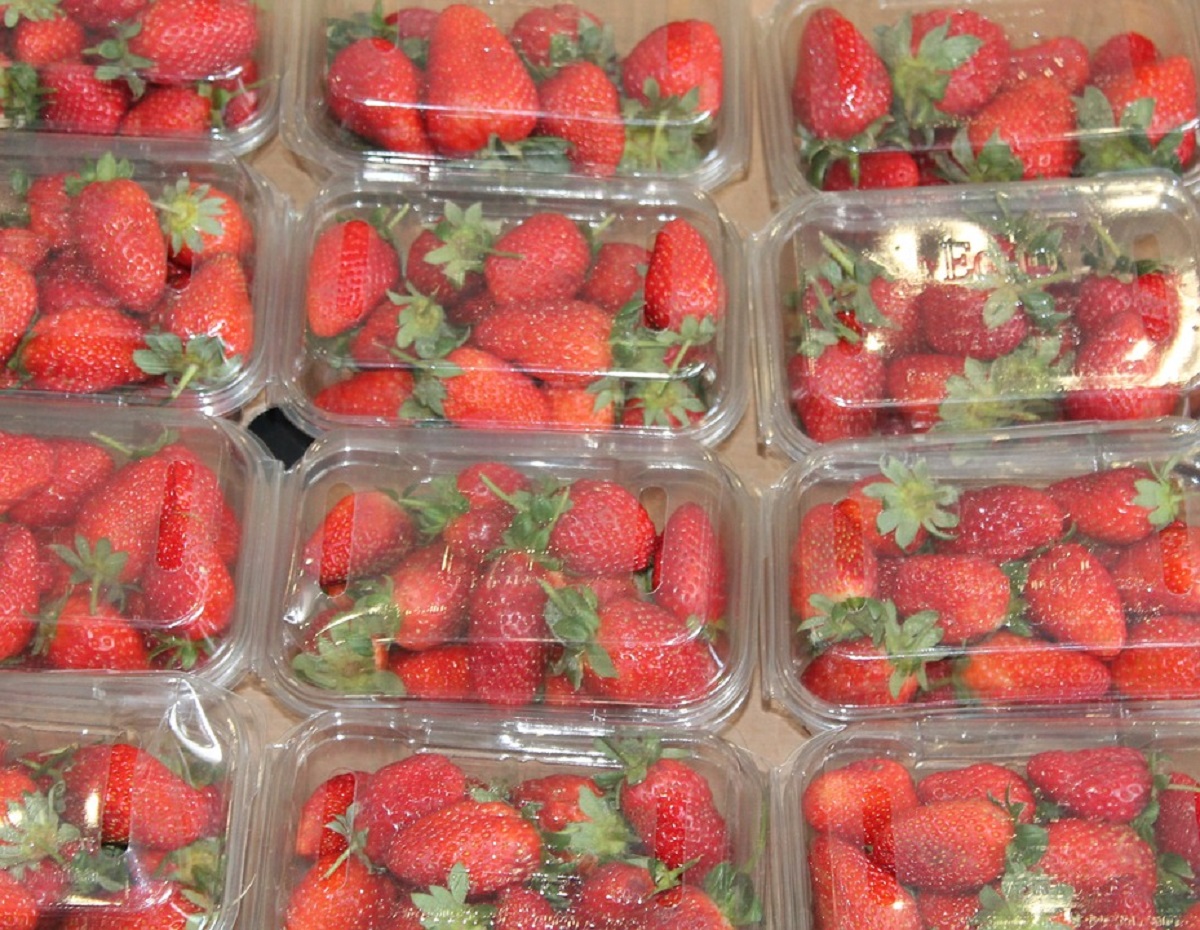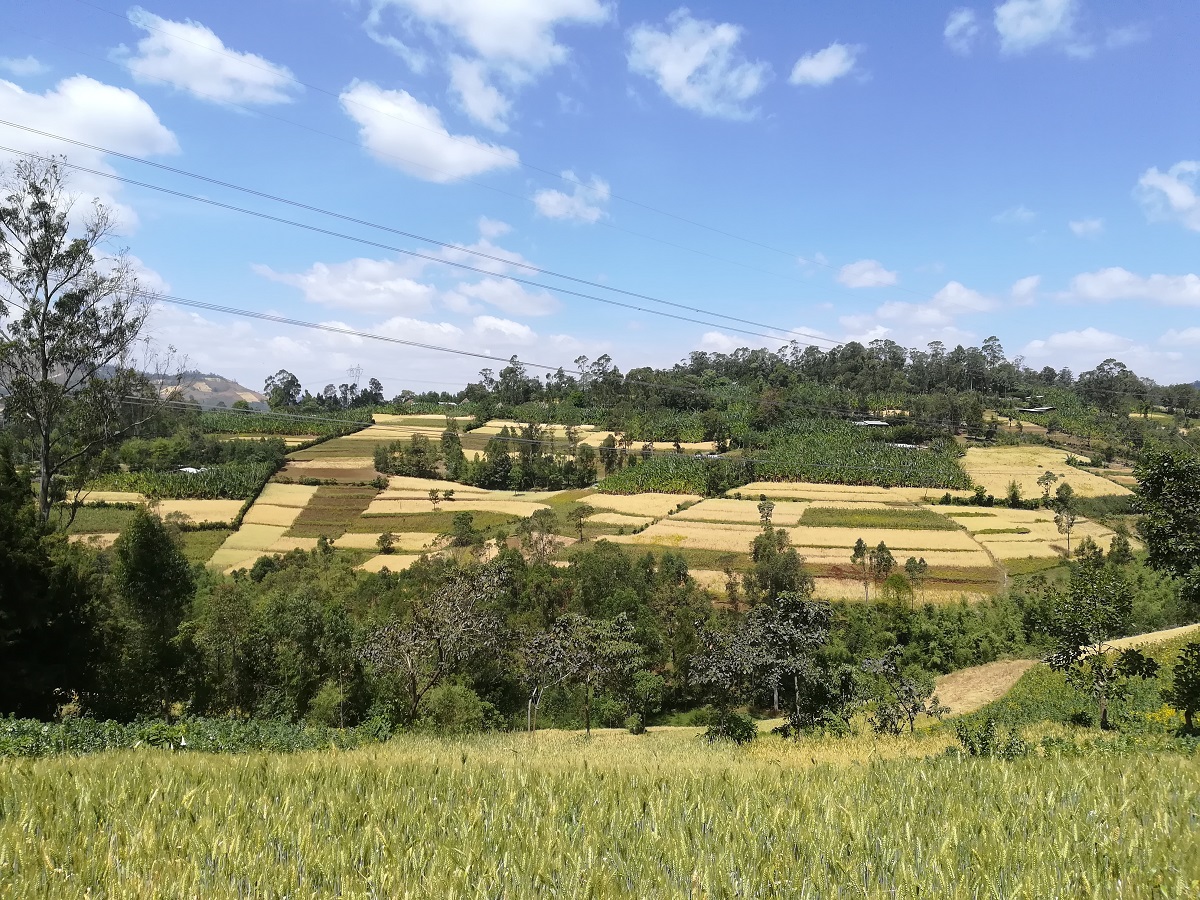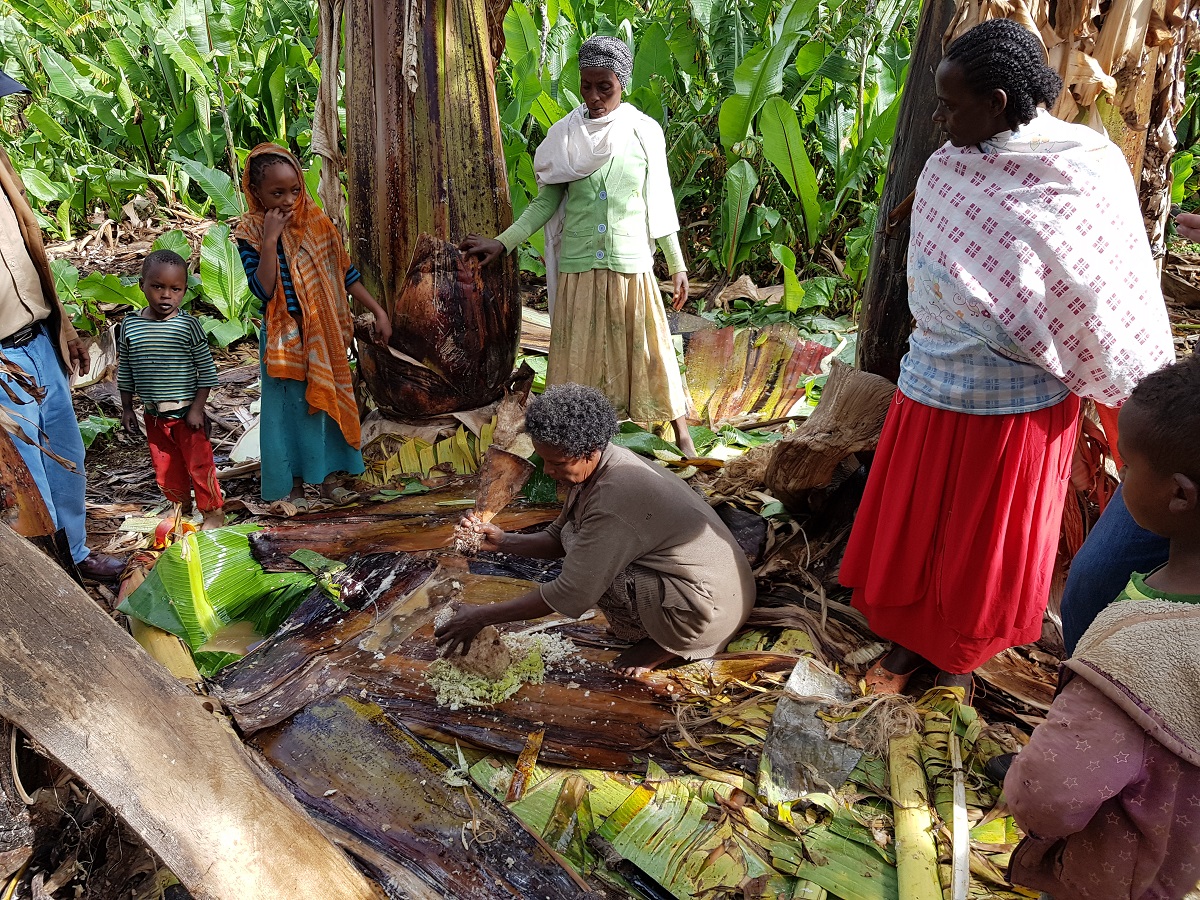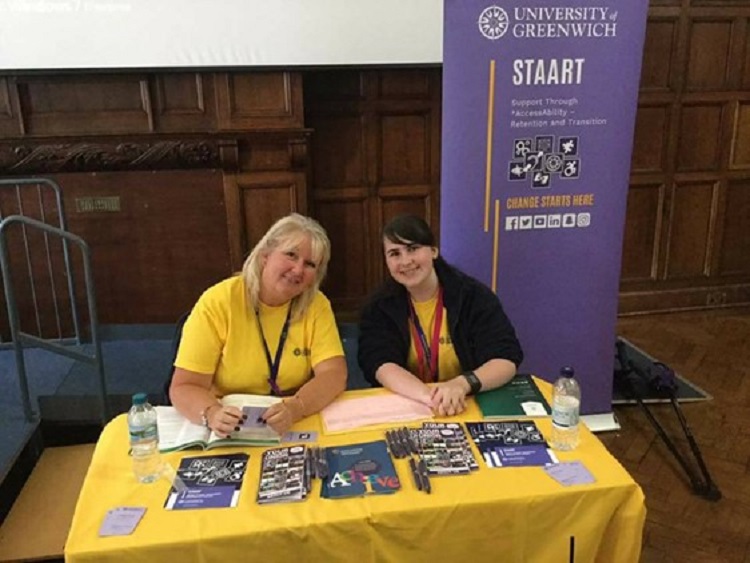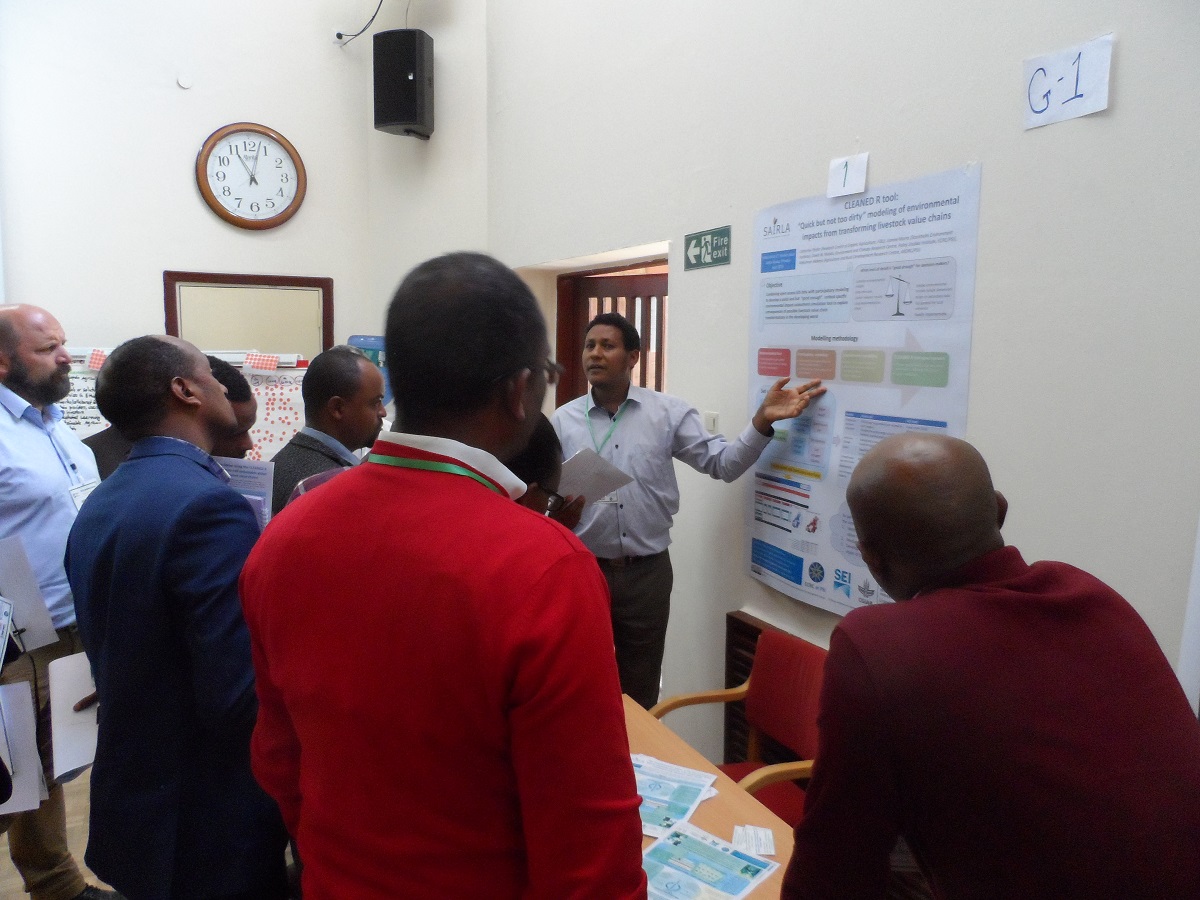News - 2020
Tiny midges are the pollinators of cacao flowers, from which we get cocoa beans, the raw material for chocolate. Until now, little was known about how the midges find these flowers. Together with researchers in the UK, Trinidad and Tobago, Jamaica, Argentina and Australia, NRI’s Sarah Arnold was part of a project aimed at finding out whether the scent of the flower helped the midges to find it, with the ultimate aim of understanding how to improve pollination.
Predators such as ladybirds directly consume the pest, whereas parasitoids, like parasitoid wasps, lay eggs on or inside pest insects that grow and ultimately kill the pest. Non-crop habitats such as field margins provide shelter, alternative prey/hosts and nectar to support populations of natural enemies.
In 2016, scientists found fall armyworm in West Africa. Soon it spread across the continent, where it is present in at least 18 countries to date. However, it didn’t stop there, and last year it was found in East Asia with fear of a similar spread.
Black vine weevils are a serious problem for growers trying to produce fruit, vegetables and flowers: they feed on virtually any plants they can find, they don’t have to mate to produce large numbers of eggs, and they are notoriously difficult to get rid of. The caterpillars eat the roots of plants and can live in the soil where they are very well hidden and protected. By the time they transform into adult weevils, the damage is often done.
The International Seminar on Food and Nutrition Security in Africa will take place on Monday 25th January 2021, starting at 1300GMT and ending at 1530.
In 2001, UNESCO designated November 10th as World Science Day for Peace and Development, aiming to raise awareness of the role of science in the creation of peaceful and sustainable societies. NRI’s Professor Tilman Brück is an expert in food security, state fragility and climate change. His work is unusual in that there are many who study either conflict and peace, or food security and hunger, but not many who study the intersection of the two.
This year saw the first ever International Day of Awareness of Food Loss and Waste which drew global attention to this important issue. NRI has been finding solutions for tackling food loss and waste for over a century and is taking this opportunity to share some of its most exciting projects, old and new.
Ethiopia faces multiple interacting development challenges linked to environmental change and land degradation, which have negative consequences for food security. As a plant diversity hotspot for both wild plants and domesticated crops, Ethiopia harbours biological resources that could play important roles in solving these challenges. UK Research and Innovation, through the Global Challenges Research Fund, are funding a new project collaboration between Royal Botanic Gardens, Kew, and Professor Phil Stevenson at NRI, NRI’s Dr Sarah Arnold and Professor Ben Bennett, and partners in Ethiopia including Professor Sebsebe Demissew, a botanist from Addis Ababa University. The project aims to enable the realisation of the potential of Ethiopia’s abundant and unique plant diversity to address global challenges in food security, health and nutrition, and poverty and displacement.
Enset (Ensete ventricosum) is the less well-known relative of one of the world’s most popular fruits, the banana (Musa sp.). According to the FAO, every year 114 million tonnes of bananas are grown on approximately 5.6 million hectares of land in 135 countries. In contrast, and despite growing wild across much of East and Southern Africa, enset has only ever been domesticated and cultivated in one small region of southern Ethiopia, where it is a main staple. Cultivated for its corm (fleshy underground stem) and pseudostem (trunk), rather than for its fruit which is inedible, enset is sometimes called the ‘false banana’, though a more fitting moniker would be ‘the tree against hunger’ as it has exceptionally high productivity and the ability to buffer seasonal food deficit.
Abi Davis studied for a BSc in Environmental Science, where she learnt about the natural world, environmental conflicts and issues, society’s impact on the environment and sustainable solutions. But more than anything, she learnt about herself, and what she could achieve. For the first time in her educational life, at university Abi received tailored support to help adapt to her conditions; for years she had struggled with undiagnosed mental and physical health issues. At school and college, often too ill to attend, she ended up missing huge chunks of her education. Abi took five minutes out of her day to Skype with NRI Communications Officer, Linden Kemkaran, to describe how she’s now using her experiences to help others.
Agricultural lands currently occupy over 37% of the Earth’s land surface. With global food production projected to double by 2050 to meet the demands of a growing population, it is vital that agricultural productivity is increased in a way that safeguards finite land resources and ecosystem services, whilst responding to climate change and other environmental concerns. In sub-Saharan Africa, there are increasing and multiple demands on agriculture, where it is a major contributor to economic growth and improving livelihoods, alongside food security.
Transforming UK Food Systems: NRI leads consortium to create innovative Centre for Doctoral Training
16th October is World Food Day – and this year’s theme is ‘Grow, Nourish, Sustain. Together.’ It seems a fitting day to announce that a consortium of nine UK universities and research institutes, led by the Natural Resources Institute of the University of Greenwich, has been awarded a prestigious grant from UKRI to create a Centre for Doctoral Training (CDT) focused on developing the next generation of interdisciplinary food systems thinkers.


